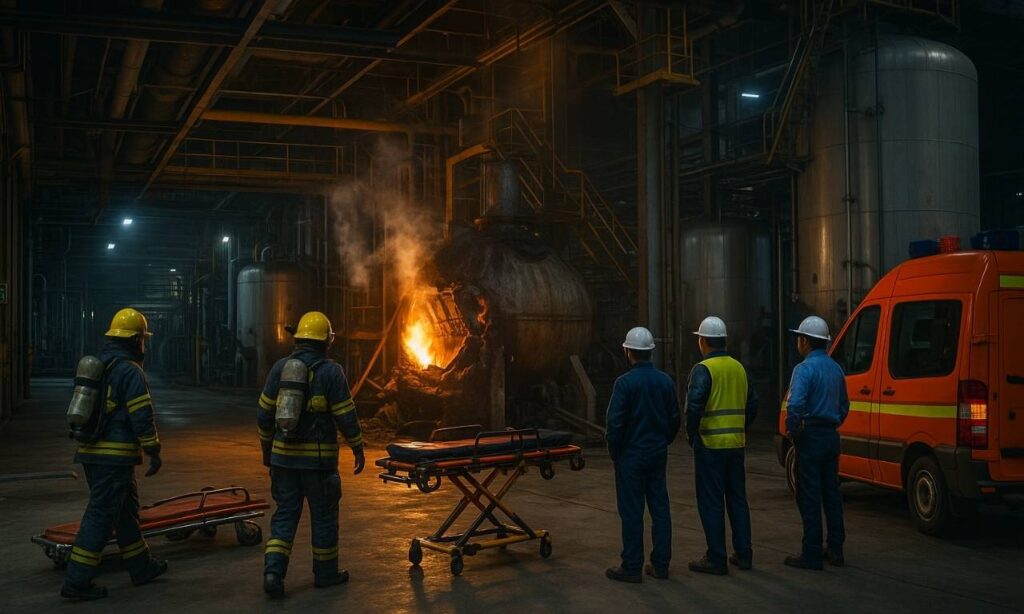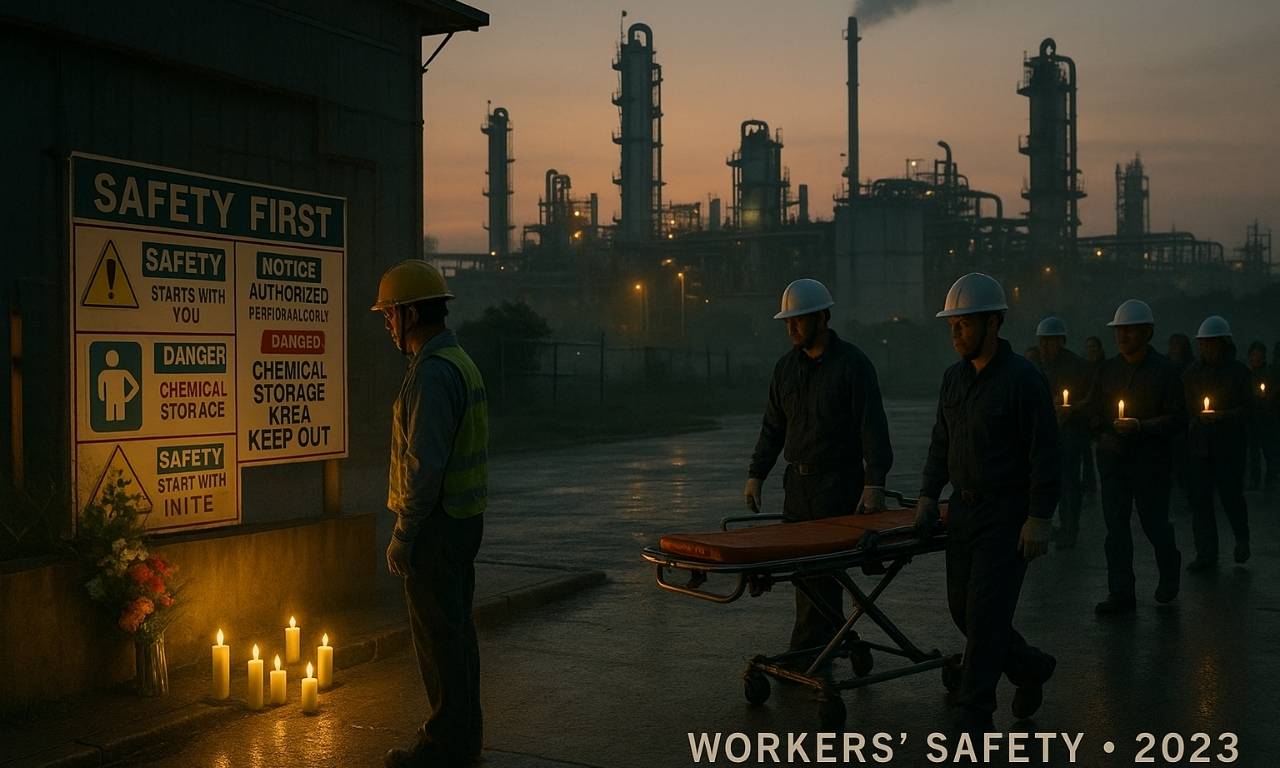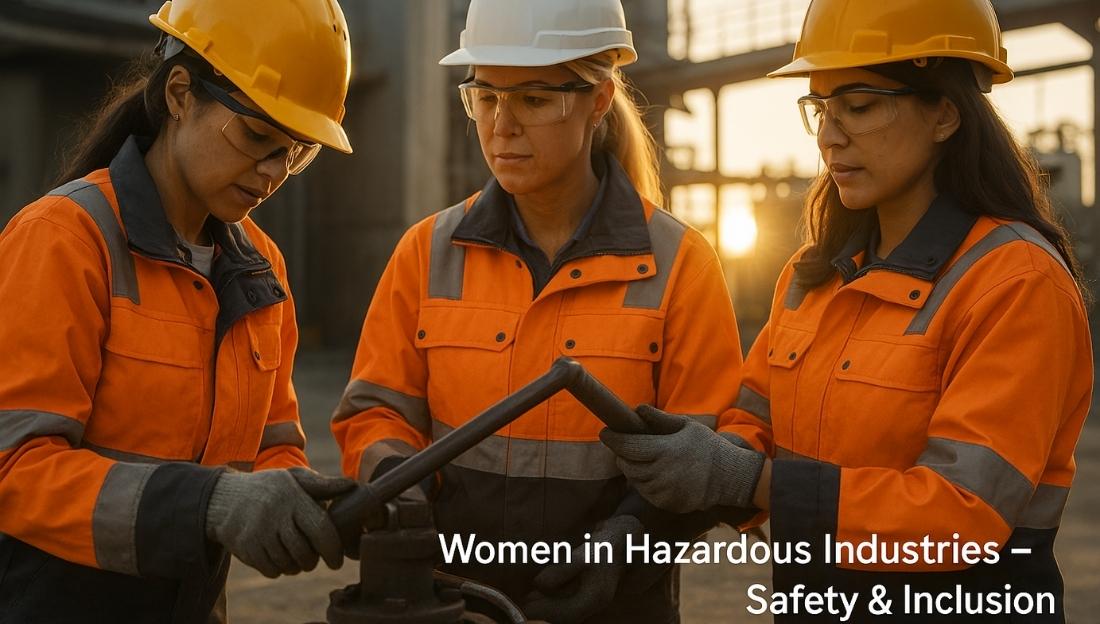A series of industrial accidents in 2023, including the Sigachi Industries chemical blast in Telangana, has raised serious questions about worker safety and weakening labour protections in India.
Sigachi Industries Explosion (Telangana, June 30, 2023)
- A chemical reactor burst, killing around 40 workers and injuring many others.
- The reactor was functioning at double the allowed temperature, with no alarms or safety officers present.
- The machinery was outdated, maintenance ignored, and unregistered contract workers had no records.
- No on-site ambulance was available; injured workers were shifted in a damaged company bus.

Other Incidents
- Gokulesh Fireworks Blast (Tamil Nadu, July 1, 2023): 8 workers died.
- Ennore Thermal Power Station Collapse (Chennai, September 30, 2023): 9 workers killed due to a faulty coal-handling structure.
These repeated tragedies point to a systemic failure in enforcing workplace safety across industries.
ILO’s Stand on Industrial Accidents
- The International Labour Organization (ILO) notes that industrial disasters are not random; they result from poor management practices and cost-cutting on safety.
- Even when labelled as “human error,” the deeper causes lie in: Long working hours and inadequate rest. Lack of safety training and equipment.
Legal Framework for Workers’ Safety in India
- Factories Act, 1948: Governs factory registration, working conditions, and machinery maintenance. Based on the principle that safe workplaces ensure productivity and dignity.
- Compensation Laws: Workmen’s Compensation Act, 1923 and Employees’ State Insurance Act, 1948 provide for compensation in cases of injury or death. In practice, compensation is minimal and delays are common.
Current Scenario and Erosion of Rights
- Since the 1990s, India has seen a gradual dilution of labour protections.
- “Ease of Doing Business” reforms and State-level self-certification have weakened inspection systems.
- The Occupational Safety, Health and Working Conditions (OSHWC) Code, 2020, though yet to be implemented, reduces safety from a statutory right to executive discretion.
- States like Karnataka have even extended working hours, worsening safety risks.
Why Worker Safety is Declining
- Profit-first mindset: Employers prioritise cost-cutting over safety investments.
- Weak enforcement: Reduced inspections and staff shortages in labour departments.
- Informal labour: A large unregistered workforce remains outside legal protection.
- Government leniency: Safety laws treated as “barriers to business.”
Conclusion
India records nearly one in four fatal workplace accidents worldwide, showing the deep neglect of worker safety. Unless the State restores inspection systems, enforces accountability, and treats safety as a legal right, the cycle of industrial deaths will continue.
This topic is available in detail on our main website.





